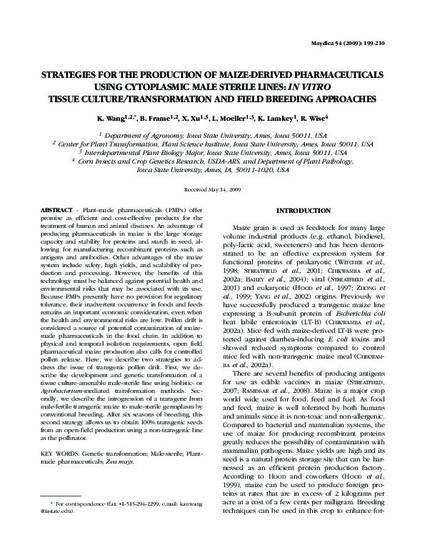
Plant-made pharmaceuticals (PMPs) offer promise as efficient and cost-effective products for the treatment of human and animal diseases. An advantage of producing pharmaceuticals in maize is the large storage capacity and stability for proteins and starch in seed, allowing for manufacturing recombinant proteins such as antigens and antibodies. Other advantages of the maize system include safety, high yields, and scalability of production and processing. However, the benefits of this technology must be balanced against potential health and environmental risks that may be associated with its use. Because PMPs presently have no provision for regulatory tolerance, their inadvertent occurrence in foods and feeds remains an important economic consideration, even when the health and environmental risks are low. Pollen drift is considered a source of potential contamination of maizemade pharmaceuticals in the food chain. In addition to physical and temporal isolation requirements, open field pharmaceutical maize production also calls for controlled pollen release. Here, we describe two strategies to address the issue of transgenic pollen drift. First, we describe the development and genetic transformation of a tissue culture-amenable male-sterile line using biolistic- or Agrobacterium-mediated transformation methods. Secondly, we describe the introgression of a transgene from male-fertile transgenic maize to male-sterile germplasm by conventional breeding. After six seasons of breeding, this second strategy allows us to obtain 100% transgenic seeds from an open-field production using a non-transgenic line as the pollinator.
Available at: http://works.bepress.com/kendall_lamkey/8/

This article is from Maydica 54 (2009): 199–210.